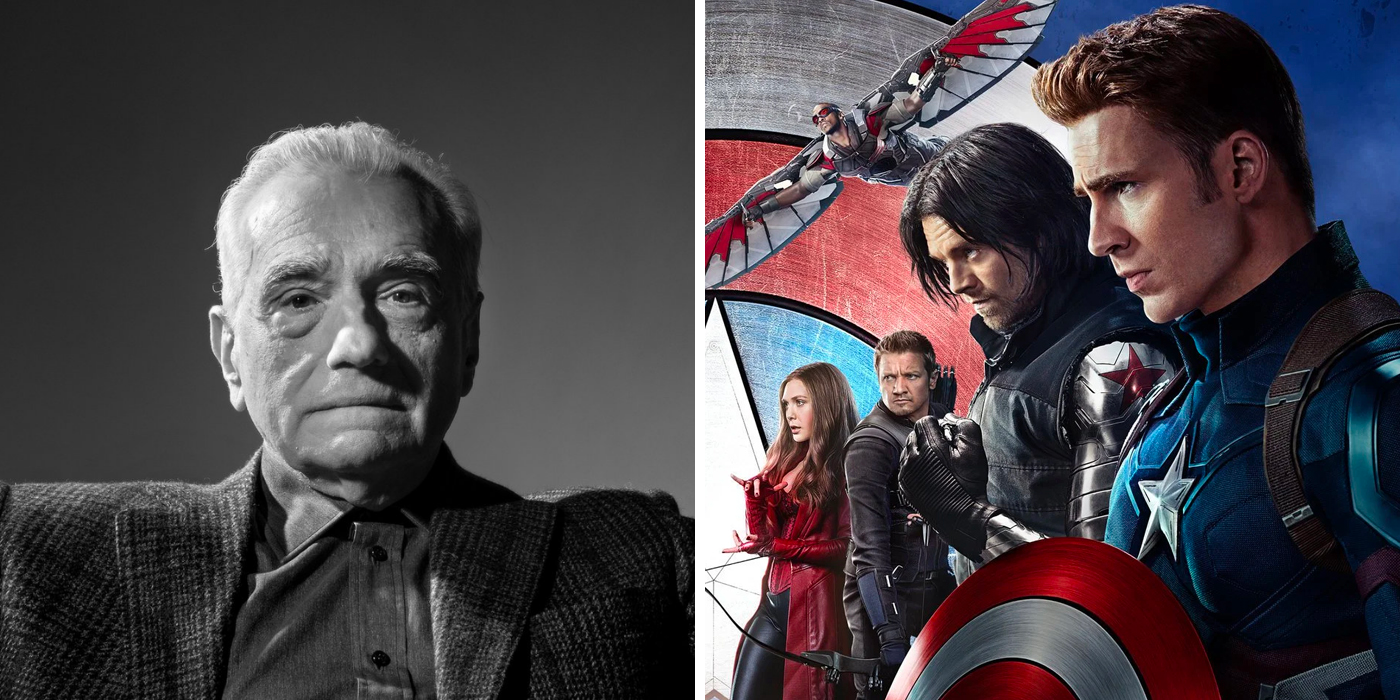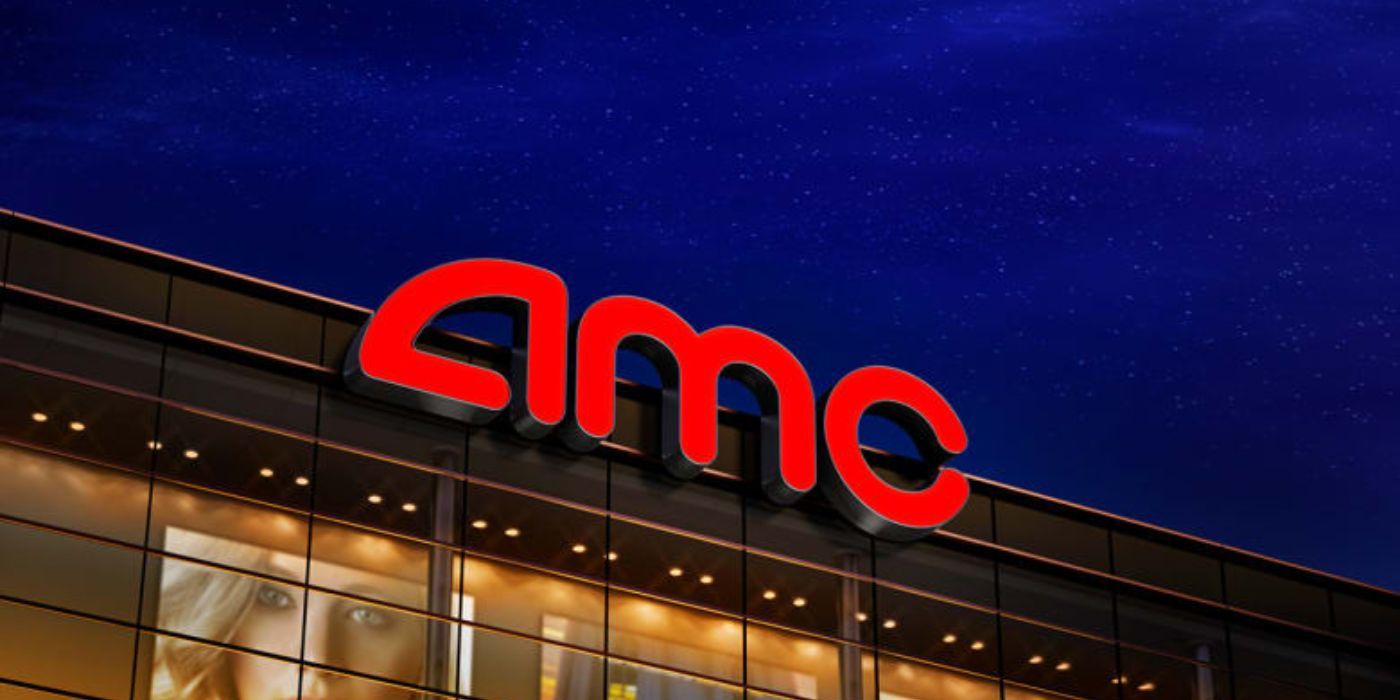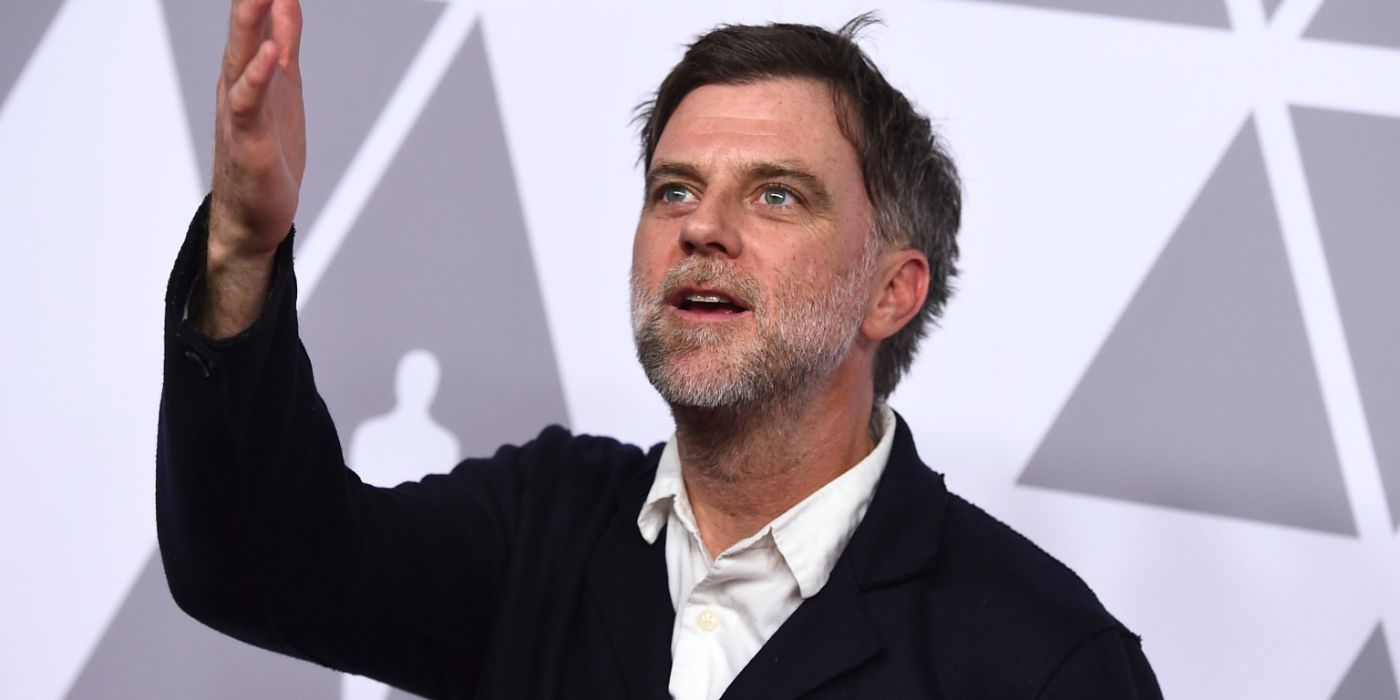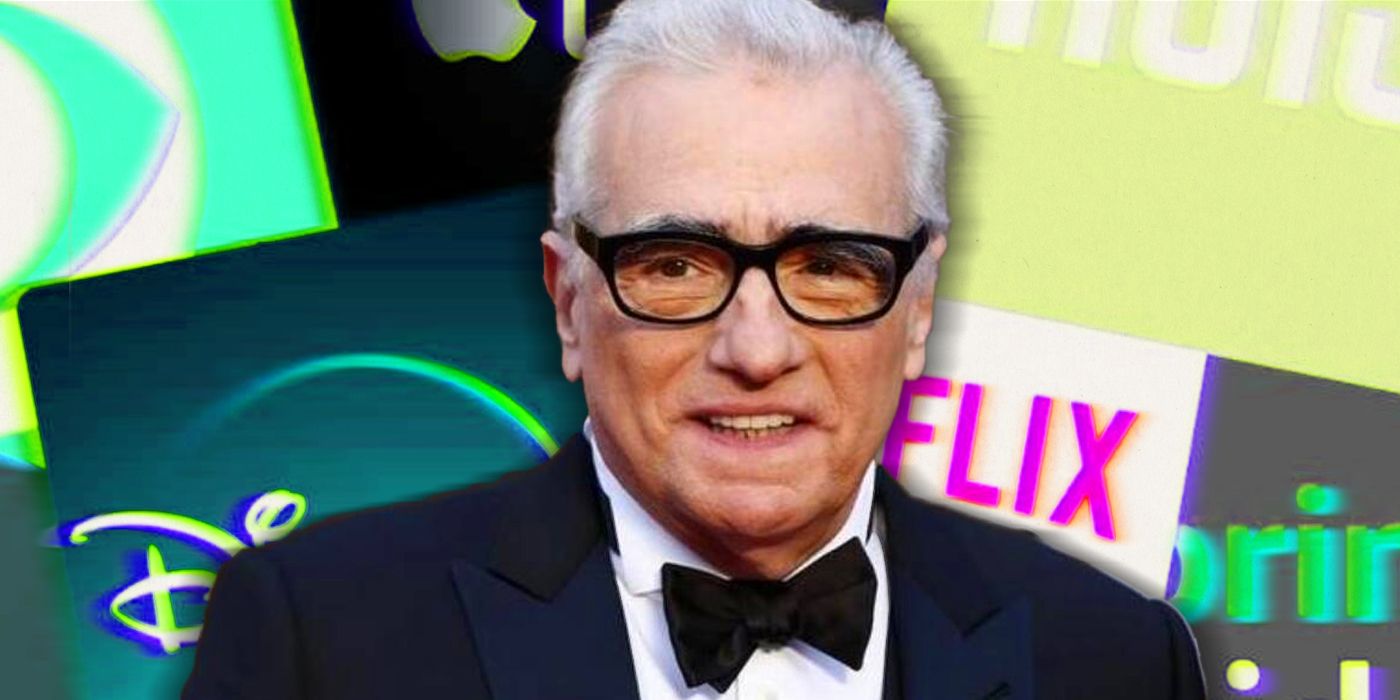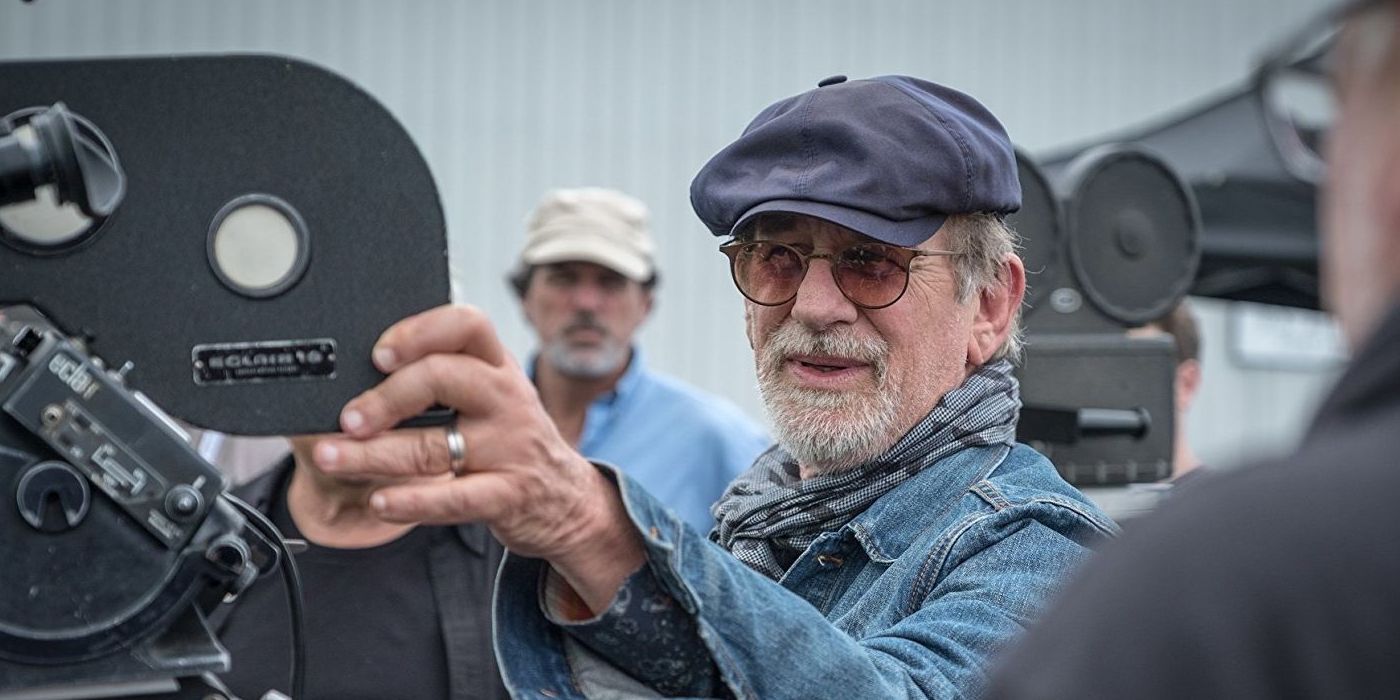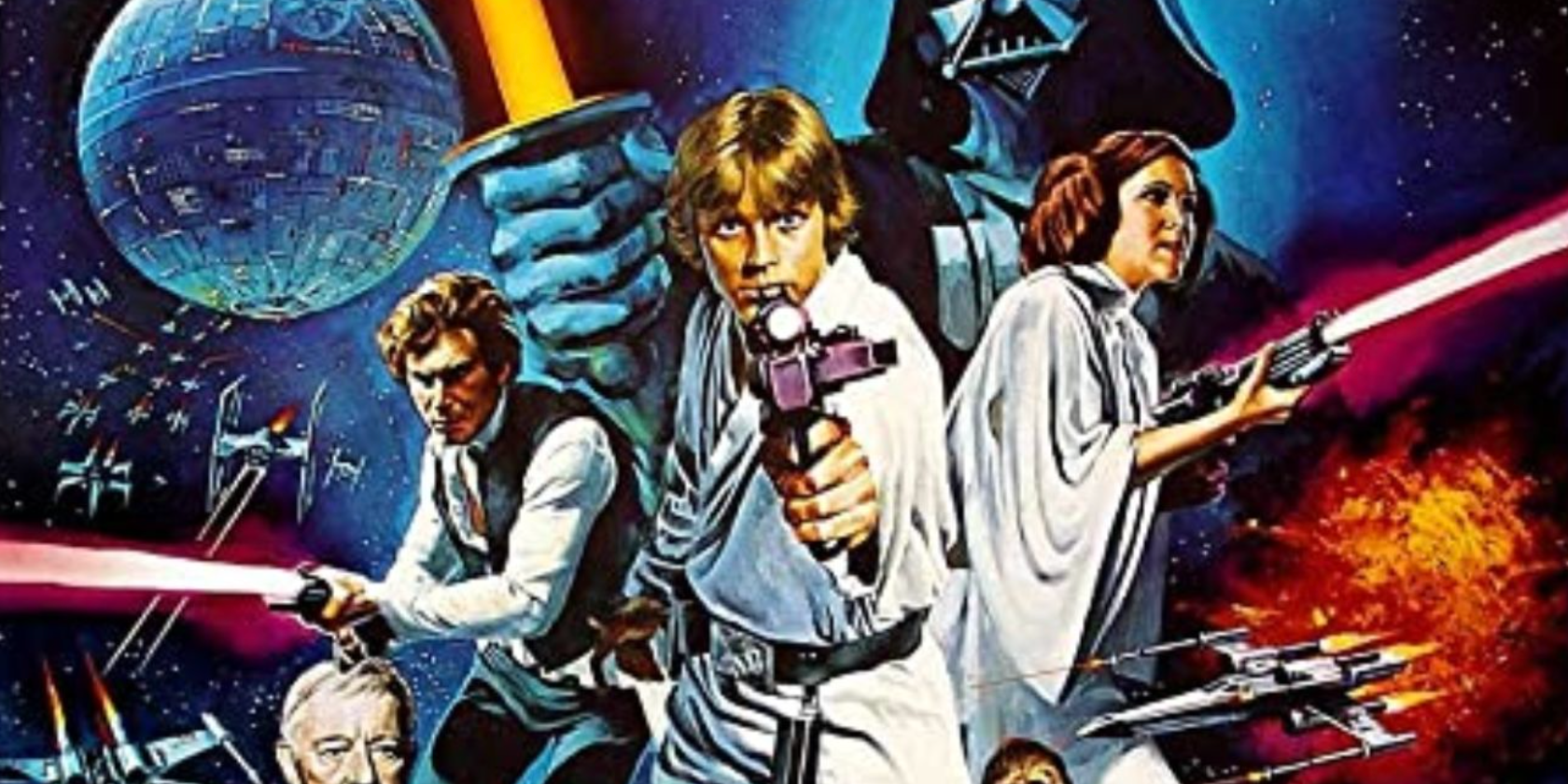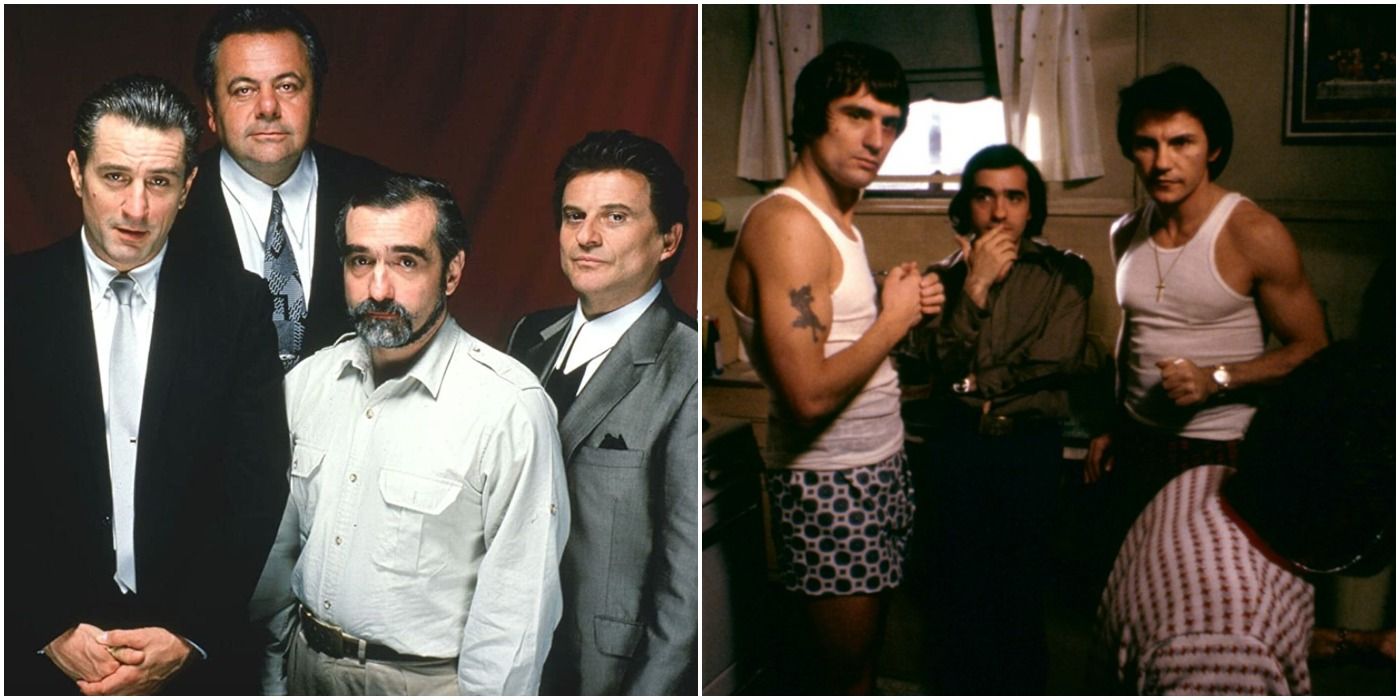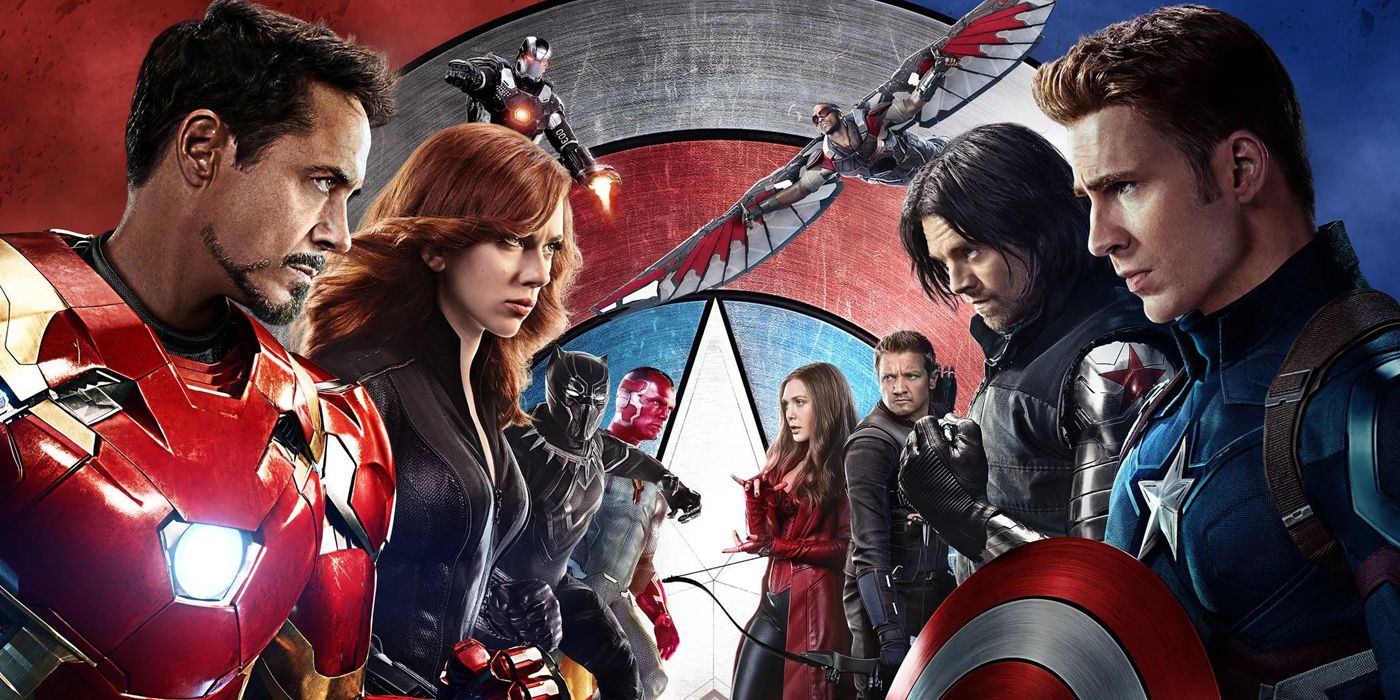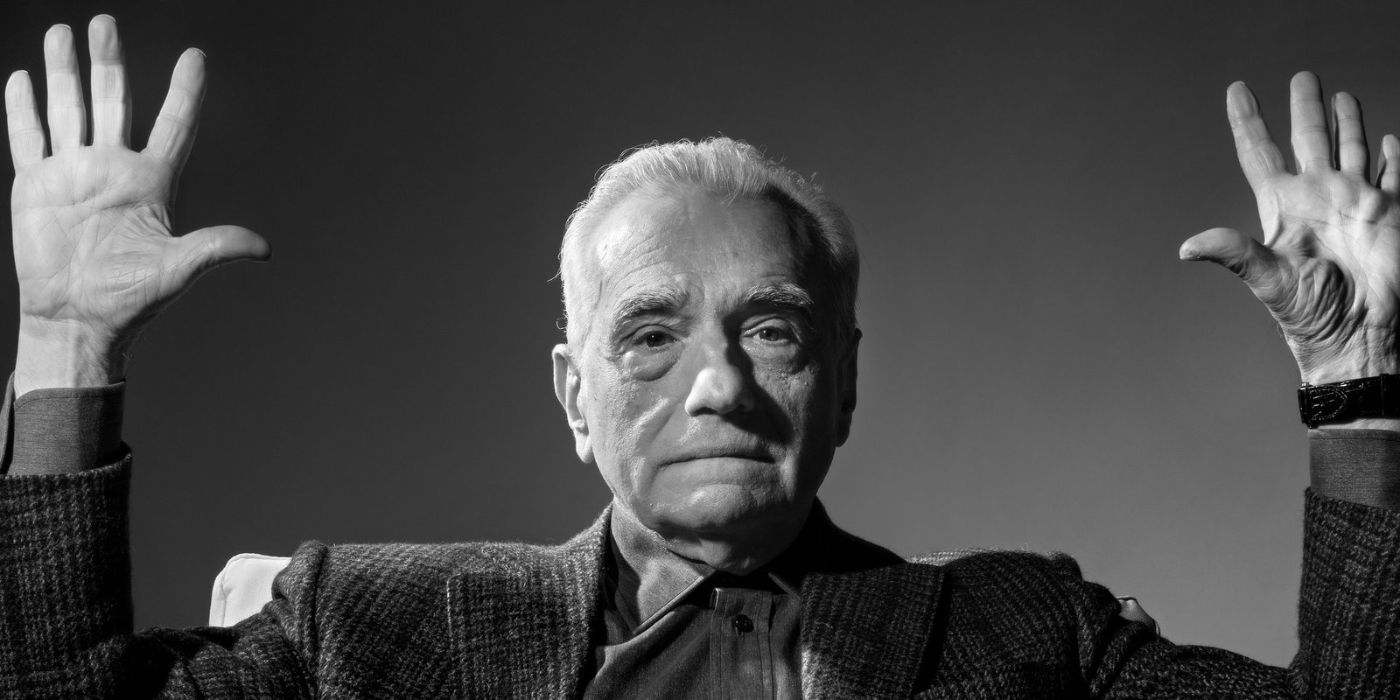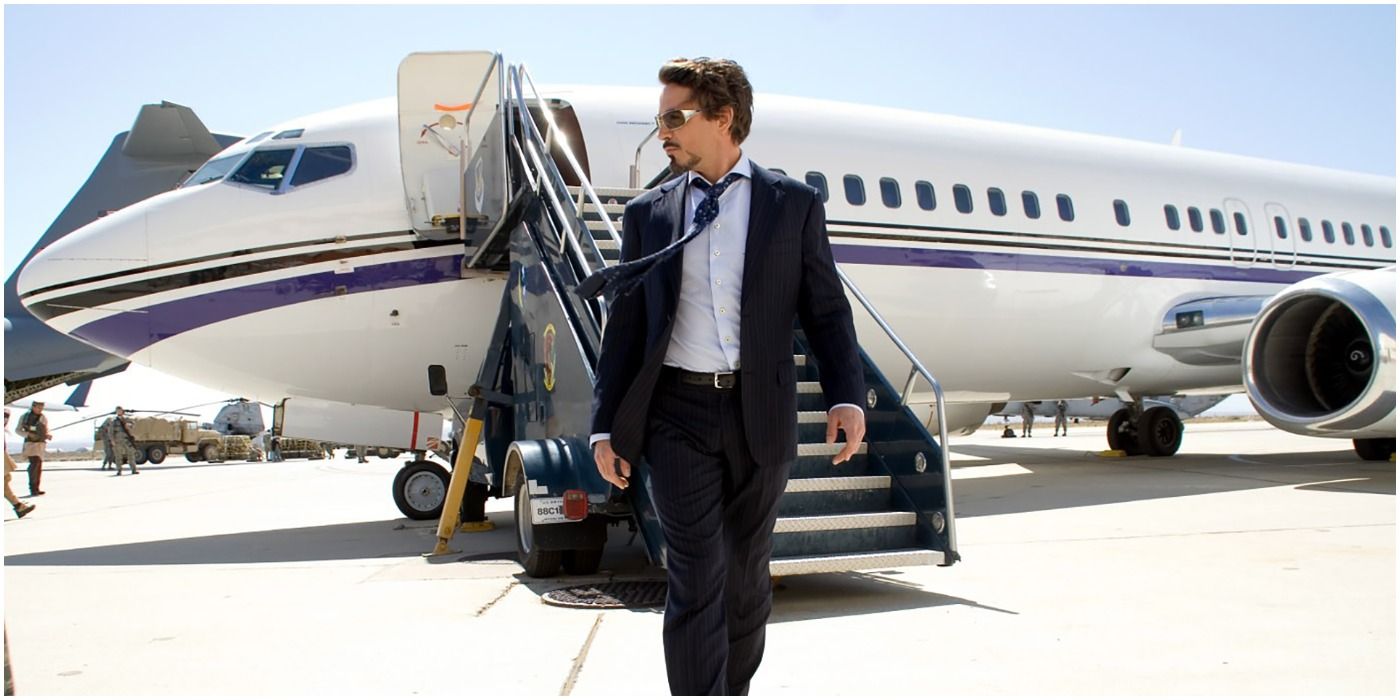There are few directors whose opinions on the industry are regarded so highly. Martin Scorsese, who brought such quintessential gangster movies to the silver screen, is surely one of them. Scorsese rose to popularity during the New Hollywood era of the 1970s with his classic film Taxi Driver. Through the eighties and well into the 2000s, Scorsese directed such noteworthy movies as Raging Bull, Casino, The Departed, and Goodfellas. Scorsese is without a doubt a voice to be reckoned with in modern American cinema.
This is why his strong and unfiltered opinions on superhero movies, especially at the height of Avengers stardom, caused so much of a stir. Scorsese told Empire magazine that he believed Marvel movies "are not cinema," which caused an intense public discourse that compelled him to explain his comments in an op-ed piece for The New York Times. There's plenty of room for debate that allows Marvel movies to be open to criticism. Seeing how Scorsese is a legend, it's certainly worthy to discuss his opinion impact.
10 Does Matter: Scorsese's Criticism Pertains To A Changing Industry
While Scorsese's not a fan of superhero films, his feedback is less out of contempt and more out of fear of a vanishing theater experience. He lamented that an emphasis on big-budget superhero movies may destroy independent movie theaters or films. Scorsese penned his op-ed in 2019, a year before the COVID-19 pandemic caused a seismic shift in the movie theater experience. His fear is more pertinent than ever in an age where moviegoers fear getting sick and have the option of streaming films.
Spielberg's West Side Story remake was overshadowed by Spider-Man: No Way Home. Enticing viewers to leave their house is harder than ever, unless it's a superhero film that may have surprise guest appearances. While this shouldn't justify thumbing one's nose at superhero movies, Scorsese's fear of local cinemas becoming extinct is very real, which is why it's important to support local cinemas.
9 Doesn't Matter: Not Every Director Agrees With Scorsese
Not only do many moviegoers disagree with Scorsese, but other directors disagree as well. In an interview with The New Yorker, Licorice Pizza's director Paul Thomas Anderson didn't seem to share all of Scorsese's sentiments on superhero films. While acknowledging that there's a preoccupation with superhero movies, Anderson revealed that he liked them and rejoiced that they're bringing people back to movie theaters.
Anderson seemed to imply that he felt the pandemic was more of a challenge for local theaters than superhero films. "What's gonna get them back in movie theaters? Spider-Man," Anderson stated. For every Scorsese criticism, or Ridley Scott's more scathing critique, there are directors like Anderson that don't view them as a problem.
8 Does Matter: Scorsese's Opinion Could Influence Viewers Choices
Scorsese's call for an elevated, less CGI-based movie making could influence screenwriters, directors, and producers alike. While superhero movies always bring in the big bucks, there's a push to have more cinematic films from studios like A24. But what may be more important is that Scorsese's criticism may also galvanize movie viewers to support more indie or smaller budget films.
There's clearly been a market for cinematic films in recent years with the popularity surrounding movies like Moonlight, Hereditary, and others. While it definitely wouldn't be a complete shift, Scorsese's call may sway fans who value the movie experience to support more artistic films over big blockbusters.
7 Doesn't Matter: Scorsese's Logic Contradicts Himself In NYT Op-Ed
Scorsese made clear he didn't mean to insult the MCU's filmmakers, but that he considered them to be more of "theme parks" than cinema. In the same op-ed, he praised Alfred Hitchcock's work and said Psycho's premiere was so monumental that it compared to a theme park experience.
With all due respect to one of the GOATS, Scorsese's logic is flawed. If real cinema shouldn't reflect a theme park experience, and Psycho's premiere reflected a theme park experience, then by that logic, Hitchcock's slasher classic isn't cinema either? The truth of the matter is that if Hitchcock had the technology that the Russo Brothers had, The Birds would've looked like a very different movie, and probably wouldn't have been any less cinematic.
6 Does Matter: Veteran Filmmakers Share Some Similar Sentiments
In 2013, years before the COVID-19 pandemic, fellow movie legends Steven Spielberg and George Lucas had some grim predictions for the industry while giving a lecture to USC. They predicted a certain upheaval in the industry where fewer movies will get into theaters and only big budget movies will see wider release, with higher ticket prices.
Spielberg lamented that Lincoln was very close to being a straight to HBO movie. This coincides with Scorsese's "theme park" critique. Cinema, as these directors defined it, may not be dead but the movie theater experience may certainly be dominated by the likes of Spider-Man.
5 Doesn't Matter: There Have Been Blockbusters Since The '70s That Qualify As "Cinema"
Scorsese mentioned he had friends and peers that were making movies at the time he came up. While not explicitly mentioned, that list includes Steven Spielberg and George Lucas. The ironic thing about the criticisms of modern movies from these beloved directors is that they inspired most of the current landscape. The "blockbuster" was a phenomenon that came around during the '70s and continued into the eighties, starting with Spielberg's Jaws and Lucas' Star Wars. In the '90s, Spielberg's Jurassic Park brought CGI technology to the industry.
These films set the template that allowed Hollywood to grow the Marvel universe several decades later. Cinema didn't disappear because moviegoers lined up to see a killer shark or Darth Vader. Why would it be any different today?
4 Does Matter: The "Elimination Of Risk" Is A Real Concern
It can't be reiterated enough that Scorsese isn't completely putting down these films. Scorsese's worry is that big budget studios will only throw their weight behind franchise pictures that are guaranteed to make money. Scorsese feared that this desire for financial dominance will limit taking a risk on an individual artist's vision. Instead, there will be a focus on making the same finely packaged product.
George Lucas made a similar point to Charlie Rose regarding the film Red Tails. Scorsese's not wrong that there is an elimination of risk. However that blame may fall more on Hollywood than the fans and directors who want to see the MCU come alive.
3 Doesn't Matter: The Movies Are Made With Quality Plot Lines & Character Development
Scorsese conceded that these movies are made by people with considerable talent. Besides the films that were panned by fans and critics alike, such as Iron Man 2 and Thor: The Dark World, there have been some amazing MCU movies. Films like Avengers: Infinity War bring out just as much passion in the viewer as Goodfellas did in the earlier '90s.
Besides MCU, Christopher Nolan's The Dark Knight is just as cinematic as any Hitchcock movie Scorsese had seen as a kid. Scorsese seemed to downplay the complex emotion, character development, and storytelling that exists in these films. The MCU proved that putting on colorful armor and fighting bad guys doesn't forfeit a film's chance to become a cinematic experience.
2 Does Matter: Martin Scorsese Is A Living Legend
There are only a handful of directors who can gain the attention of Hollywood and moviegoers at the same time. Even though Scorsese had only won one Oscar for his film The Departed, he's received decades of nominations and his films have wide acclaim.
He's consistently ranked as one of the greatest directors of all time. Parasite's director Bong Joon-ho paid tribute to Scorsese in his Oscar acceptance speech. When Scorsese has an opinion of film, whether one agrees or disagrees, people listen out of respect for the vast quality of work he's put out. To quote ScreenRant "Every time Scorsese announces and releases a new project, it becomes a cinematic event of it's own." More than any Hollywood executive, Scorsese proved to be an authority on the subject of cinema.
1 Doesn't Matter: Superhero Films Make A Ton Of Money
Despite being an industry populated by artists, show business is still a business. Superhero films, especially those associated with the MCU, make money, which is crucial for an industry that was heavily impacted by the COVID-19 pandemic.
It's undeniable that superhero movies are cash cows, seeing how three of the top ten highest-grossing movies of all time are part of the Avengers franchise. While many film buffs will hear out Scorsese's argument, it really doesn't matter because executives are in the business of producing a hit. As long as superhero movies make money, Scorsese's criticisms risk falling on deaf ears.

